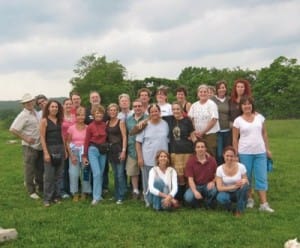If genuine love is an action, and not just a rush or an emotion, people who become entranced by romantic television or novels may remain in a state of searching for the next great romantic experience for years, or a lifetime. For many who can’t put down steamy novels or spend hours viewing romantic television, the problem may actually be love addiction – a recognized condition caused when the brain continues to crave the initial but typically short-lived “high” of a romantic relationship. Living with love addiction isn’t a pleasurable experience, contrary to stereotypes. The feelings of anxiety, hopelessness or longing can be intense and disrupt daily living. An individual with love addiction may move from one relationship to another, fueled by the way they feel during the “high” phase. Movies, websites, novels and television sitcoms can further breed dissatisfaction toward a current relationship and create a set of false beliefs or expectations a partner can’t meet. Professional therapist and writer Sheryl Paul comments in a recent article that love is something people do, rather than feel – and this is where people with love addiction may start to feel confused, anxious or ready to move on to another relationship to regain the sense of newness. Media portrayals of love as constantly steamy, energy-charged and full of pleasure may contribute to growing numbers of people who are using other types of external stimulus to achieve a feeling that only lasts a short period. In some cases, people with love addiction have deeply held intimacy problems from childhood abandonment or abuse; others have chronically low self-esteem. They may use sex to lure repeated partners into new relationships, or have sex addiction combined with love addiction – moving from one sexual relationship to another and eventually losing their ability to stop the behaviors, even when the consequences are known. Love addiction and sexual addiction are serious and require professional help to reach and maintain recovery. This can include learning new ways to work through negative emotions or new ways to feel joy or excitement that don’t involve repeated romantic encounters.
Call for Immediate Help:1.844.876.7680

